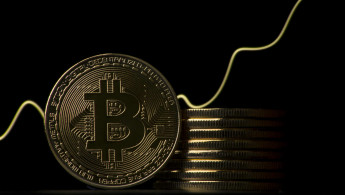Saudi Arabia and UAE banks 'working on cross-border digital currency' despite rulings cryptocurrencies are 'un-Islamic'
The governor of the Central Bank of the UAE announced the plan for the new blockchain-based digital currency at this week's Arab Monetary Fund meeting in Abu Dhabi.
"This is probably the first time for monetary authorities from different countries to cooperate on this topic and we hope that this achievement will foster similar collaboration in our region," said UAE's Central Bank governor Mubarak Rashed Al Mansouri.
Speaking to Gulf News at the high profile meeting of Arab finance bigwigs, Mansouri emphasised that the project was still in the early stages and did not give a date for when the cryptocurrency would be launched.
He clarified that the new currency will primarily be used for “much more efficient” cross-border transactions between the two central monetary authorities, as well a certain number of commercial banks in the two countries, but will not be available for retail consumer use.
The initiative is also a marked turnaround in the Saudi central bank’s position on cryptocurrencies. In October, the senior adviser at the Saudi Arabia Monetary Authority (SAMA), who are undertaking the joint venture with the Central Bank of the UAE, stated that cryptocurrencies are not “mature enough” to warrant regulation by the Saudi central bank.
In an interview with CNBC, Abdulmalik al-Sheikh said, “I think all the central banks… are observing [and] trying to measure the impact of [cryptocurrencies]. I think it’s about another five years before we can really see whether there is a true impact on the currencies in general [and] what will be the future operating model of… cryptocurrency.”
The finance chief did mention however, in reference to the prospect of a state-backed cryptocurrency, that SAMA was “observing the development globally… Looking at different possibilities and scenarios”.
 |
I just don’t believe in this Bitcoin thing. I think it’s just going to implode one day. I think is Enron in the making, it just doesn’t make sense |  |
On the same day, Saudi Prince Alwaleed bin Talal slammed the popular digital currency Bitcoin, in an interview with CNBC.
“I just don’t believe in this Bitcoin thing. I think it’s just going to implode one day. I think is Enron in the making, it just doesn’t make sense. This thing is not regulated, it’s not under control, it’s not under the supervision of any central bank,” he said of the cryptocurrency.
The Saudi-UAE announcement also comes days after a Saudi cleric ruled that cryptocurrencies are prohibited under Islamic law, due to their “ambiguous” nature and the fact they can provide anonymity to criminals.
"We know that Bitcoins remain anonymous when you deal with it… which means that it's an open gate for money laundering, drug money and haram (forbidden) money," announced the Saudi cleric Assim al-Hakeem on his TV show earlier this month.
In September, the government of Dubai launched its own blockchain-based cryptocurrency named “emCash”. The city’s economy department hope that the new encrypted digital currency will boost business in the emirate.




 Follow the Middle East's top stories in English at The New Arab on Google News
Follow the Middle East's top stories in English at The New Arab on Google News


![22 Arab countries at COP29 have rejected the targeting of fossil fuels [Getty]](/sites/default/files/styles/image_330x185/public/2024-11/GettyImages-2184289638.jpg?h=199d8c1f&itok=ptHl5bec)